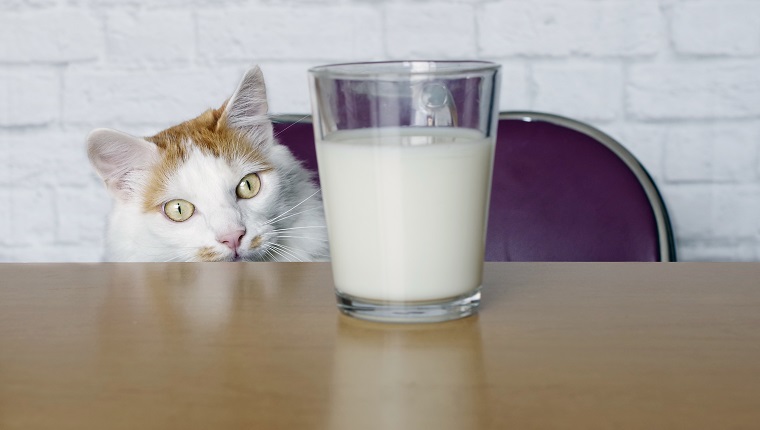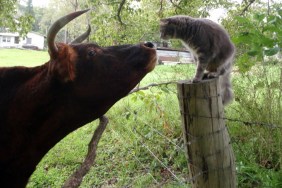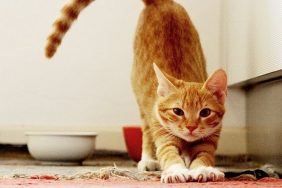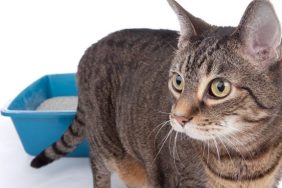Sure, we’ve all seen photos, videos, cartoons, and movies where cats happily lap up milk. It’s an old cliché at this point.
But you may be surprised to learn that dairy products from cows are probably bad for your cat. The truth is most cats can’t digest dairy at all.
But why exactly is milk bad for cats? And why is the idea of cats loving it still such a well-known myth? Here are a few things you should know about cats and dairy products.
Why Milk Is Bad For Most Cats
Most cats are lactose intolerant, like some humans. This means that they don’t have the enzymes needed to digest the lactose in dairy products.
Lactose is a type of sugar found in dairy products. When cats drink cows’ milk, they can end up with painful stomach cramps and diarrhea.
This is because undigested lactose will stay in their intestines, rather than passing into the bloodstream, and end up fermenting because of bacteria. That fermentation leads to a whole array of stomach problems that often appear within eight to twelve hours of drinking the milk.
Not all cats are lactose intolerant, but most are. Furthermore, there’s no way to tell if your cat is intolerant or not without giving them dairy products and risking them getting sick.
So, to be on the safe side, keep the cow milk, cheese, and dairy products away from your cat.
Why Is The Myth That Cats Like Milk So Popular?
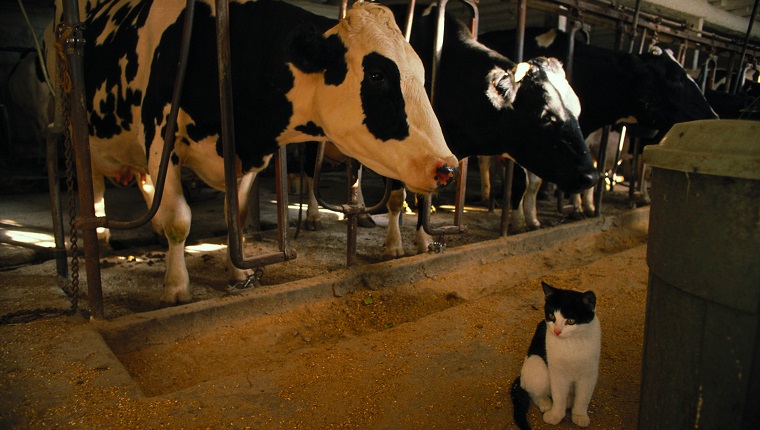
Cats love cream.
On farms, when milk came straight from the cow, the fattier cream rose to the top. Farm cats absolutely loved it. For much of history, cats lapped away at that cream, so it’s pretty clear why the image of milk-drinking cats arose.
The idea that cats love dairy persists to this day, even though many of us get our dairy products from the store and no longer have live cows on our properties.
Now, most milk doesn’t have that much fat for cats to enjoy anyway. But even cats who lap up fatty cream still have to deal with upset stomachs afterward.
It’s best to keep cats away from dairy products in general, despite the myth that felines can’t get enough of them.
When Kittens Can Drink Milk
Kittens can typically digest milk until they’ve been weaned. Around eight weeks of age, kittens lose the lactase enzyme that digests lactose.
But even before that, dairy isn’t a great option for a kitten. This is especially true if you’re raising a kitten who hasn’t been weaned yet!
Instead of using dairy products, purchase a mother’s milk replacer or kitten formula from your pet store, which has all the nutrients a kitten needs. Talk to your veterinarian for some more guidance.
Dairy Alternatives For Cats
As “boring” as it may sound, water is really the best alternative to milk. Cats typically don’t get enough water in their diets anyway, since they don’t always get thirsty when they should.
If you want to make the water a little more “fun,” consider buying a drinking fountain for your cat. These miniature fountains are simple to set up — you typically just plug them in. Then they provide moving water for your cat to drink, which they may actually prefer.
If you really want to provide a liquid treat, you can buy lactose-free milk at the pet store or even your local grocery store. This product has the lactose removed by adding lactase enzymes that break the sugar down. This means that lactose-free products are safe for lactose-intolerant cats and humans to drink.
What do you give your cat instead of milk? Are you surprised that most cats can’t properly digest dairy products? Let us know in the comments below!
